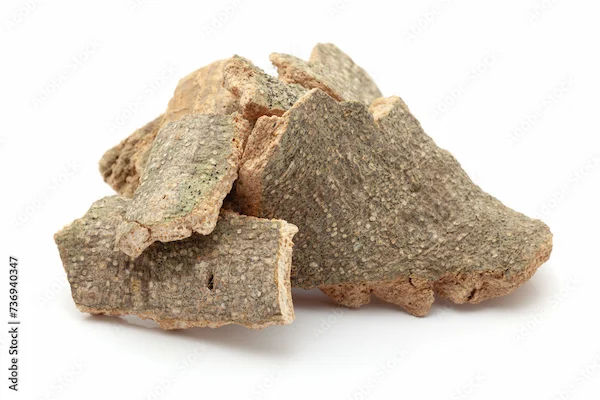Exercise for a Healthy Heart
Discover the best exercises for a healthy heart, including recommended types, intensity levels, and weekly guidelines. Learn how regular physical activity can strengthen your cardiovascular system and boost overall well-being.


Introduction
Your heart is one of the hardest working muscles in your body, pumping blood and oxygen to every part of your system. Keeping it healthy is essential for a long and active life, and one of the best ways to do that is through regular exercise.
If you're wondering how exercise benefits your heart, what kind of workouts are best, or how to get started safely, this guide is for you. We’ll break it all down in simple, easy to understand terms.
Why Exercise is Essential for Heart Health?
Regular physical activity strengthens your heart, improves circulation, and helps maintain a healthy weight—all of which reduce the risk of heart disease. Here’s how exercise helps:
Strengthens the Heart Muscle: Just like any other muscle, your heart becomes stronger with exercise, allowing it to pump blood more efficiently.
Lowers Blood Pressure: Exercise helps keep your arteries flexible, reducing strain on your heart.
Improves Cholesterol Levels: It raises "good" HDL cholesterol and lowers "bad" LDL cholesterol.
Manages Blood Sugar: Regular activity helps control diabetes, a major risk factor for heart disease.
Reduces Stress & Anxiety: Physical activity releases endorphins, which improve mood and lower stress hormones that can harm the heart.
Best Types of Exercise for Heart Health
Not all exercises are the same when it comes to heart health. A balanced routine includes:
1. Aerobic (Cardio) Exercise
These activities get your heart rate up and improve endurance.
Brisk Walking – Simple, lowimpact, and effective.
Running or Jogging – Great for improving cardiovascular fitness.
Cycling – Gentle on joints while strengthening the heart.
Swimming – Works the whole body without stressing joints.
Dancing – Fun and great for heart health.
How much? Aim for at least 150 minutes of moderate intensity (like brisk walking) or 75 minutes of vigorous intensity (like running) per week.
2. Strength Training
Building muscle helps your body burn calories efficiently and supports heart health.
Bodyweight exercises (pushups, squats, lunges)
Resistance bands or light weights
Yoga or Pilates (improves flexibility and circulation)
How much? At least 2 days a week, focusing on major muscle groups.
3. Stretching & Flexibility Exercises
While not directly heartfocused, stretching improves circulation and prevents injuries.
Gentle yoga
Daily stretching routines
How to Start Exercising Safely?
If you're new to exercise or have existing heart conditions, it’s important to start slowly:
Consult Your Doctor First – Especially if you have heart disease, high blood pressure, or other health concerns.
Start Slow – Begin with 1015 minutes of walking and gradually increase.
Warm Up & Cool Down – Prevents strain and injuries.
Listen to Your Body – Stop if you feel dizzy, short of breath, or have chest pain.
Stay Hydrated – Drink water before, during, and after workouts.
Choose Enjoyable Activities – You’re more likely to stick with it if you like what you’re doing!
Simple Lifestyle Tips for a Healthy Heart
Exercise alone isn’t enough—pair it with these habits for the best results:
Eat a HeartHealthy Diet – More fruits, vegetables, whole grains, lean proteins, and healthy fats (like nuts and olive oil). Limit processed foods, salt, and sugar.
Quit Smoking – Smoking damages blood vessels and increases heart disease risk.
Manage Stress – Try meditation, deep breathing, or hobbies that relax you.
Get Enough Sleep – Poor sleep is linked to high blood pressure and heart disease. Aim for 79 hours.
Monitor Your Health – Regular checkups help track blood pressure, cholesterol, and blood sugar levels.
Consult Top Specialists for Personalised Tips
When to Seek Medical Advice?
While exercise is beneficial, certain symptoms should not be ignored. Consult a doctor if you experience:
Chest pain or discomfort
Severe shortness of breath
Dizziness or fainting
Irregular heartbeat
If you need personalized guidance, consider booking a heart health consultation with a specialist on Apollo 24|7. Early detection and expert advice can make all the difference!
Final Thoughts
Your heart works tirelessly for you—return the favor by keeping it strong with regular exercise and healthy habits. Even small changes, like a daily walk or swapping processed snacks for fruits, can have a big impact over time.
Start today, take it step by step, and your heart will thank you for years to come!
Consult Top Specialists
Consult Top Specialists for Personalised Tips

Dr. Mohamed Azeem
General Physician/ Internal Medicine Specialist
2 Years • MBBS,MD(Internal Medicine) CCEBDM
Karaikudi
Apollo Hospitals Karaikudi, Karaikudi

Dr. Anand Ravi
General Physician
2 Years • MBBS
Bengaluru
PRESTIGE SHANTHINIKETAN - SOCIETY CLINIC, Bengaluru

Dr Syed Mateen Pasha
General Physician
2 Years • MBBS
Bengaluru
PRESTIGE SHANTHINIKETAN - SOCIETY CLINIC, Bengaluru

Dr. Syed Ismail Ali
General Practitioner
7 Years • MBBS
Hyderabad
Apollo 24|7 Clinic, Hyderabad

Dr. Sandhya Chandel
General Physician/ Internal Medicine Specialist
16 Years • MBBS, MD (Int. Med.), IDCCM
Bilaspur
Apollo Hospitals Seepat Road, Bilaspur
(100+ Patients)
Consult Top Specialists

Dr. Mohamed Azeem
General Physician/ Internal Medicine Specialist
2 Years • MBBS,MD(Internal Medicine) CCEBDM
Karaikudi
Apollo Hospitals Karaikudi, Karaikudi

Dr. Anand Ravi
General Physician
2 Years • MBBS
Bengaluru
PRESTIGE SHANTHINIKETAN - SOCIETY CLINIC, Bengaluru

Dr Syed Mateen Pasha
General Physician
2 Years • MBBS
Bengaluru
PRESTIGE SHANTHINIKETAN - SOCIETY CLINIC, Bengaluru

Dr. Syed Ismail Ali
General Practitioner
7 Years • MBBS
Hyderabad
Apollo 24|7 Clinic, Hyderabad

Dr. Sandhya Chandel
General Physician/ Internal Medicine Specialist
16 Years • MBBS, MD (Int. Med.), IDCCM
Bilaspur
Apollo Hospitals Seepat Road, Bilaspur
(100+ Patients)




